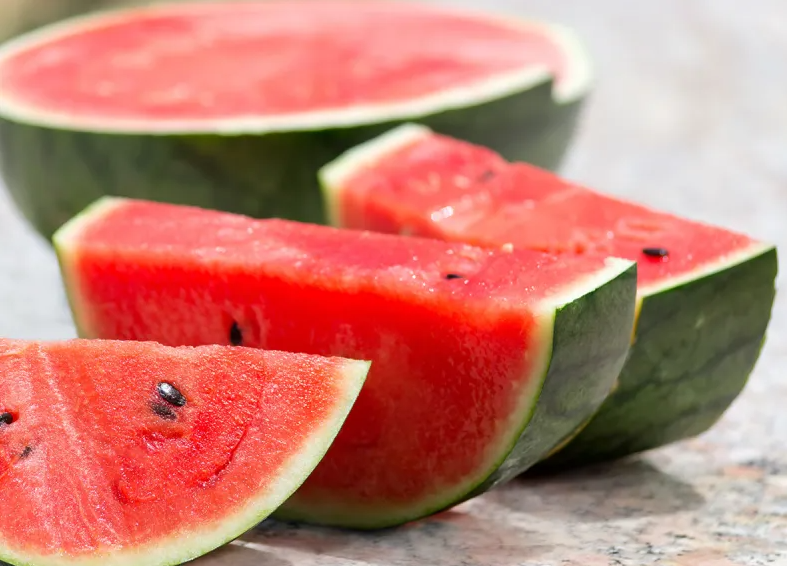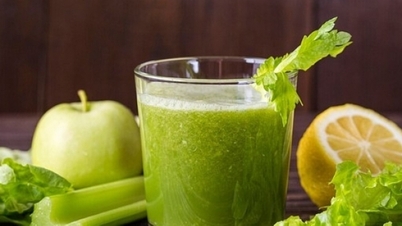100 grams of watermelon contains 112 mg of potassium, 8 mg of vitamin C, 10 mg of magnesium and 0.4 grams of fiber.
A study published in the journal Nutrients found that people who regularly eat watermelon tend to have healthier diets than those who rarely eat watermelon, according to the US website Eating Well .

People with irritable bowel syndrome should be careful when eating watermelon.
Although delicious and nutritious, some people should limit or even avoid watermelon. Some health recommendations suggest that people with irritable bowel syndrome should avoid watermelon.
Irritable bowel syndrome is a digestive disorder characterized by symptoms such as stomach pain, diarrhea, bloating, or constipation. The cause of this condition is still unclear. However, a study in the journal Medical Hypotheses suggests that irritable bowel syndrome is linked to malabsorption of fructose, a natural sugar found in honey and fruits.
Fructose absorption varies from person to person. Some people can tolerate up to 30 grams of fructose, while others can only tolerate up to 5 grams. Watermelon is high in the natural sugar fructose. People with irritable bowel syndrome cannot absorb this sugar. Eating watermelon can make their symptoms worse.

People with gastroesophageal reflux can eat watermelon but should not eat too much.
Not only watermelon but also some fruits like mango, apple also have high fructose content. Some products like fruit syrup, fruit juice can also contain large amounts of fructose and trigger symptoms of irritable bowel syndrome.
In addition to irritable bowel syndrome, inflammatory bowel diseases such as Crohn's disease and ulcerative colitis It is also recommended to be careful when eating watermelon. In addition, people with these diseases should also avoid foods rich in omega-3 fatty acids such as fish and flaxseed.
People with gastroesophageal reflux can eat watermelon but should not eat too much. Because watermelon is rich in lycopene. For people with reflux, lycopene can cause some uncomfortable symptoms such as stomach cramps, heartburn and make reflux more uncomfortable, according to Eating Well.
Source link


![[Photo] Worshiping the Tuyet Son statue - a nearly 400-year-old treasure at Keo Pagoda](/_next/image?url=https%3A%2F%2Fvphoto.vietnam.vn%2Fthumb%2F1200x675%2Fvietnam%2Fresource%2FIMAGE%2F2025%2F12%2F02%2F1764679323086_ndo_br_tempimageomw0hi-4884-jpg.webp&w=3840&q=75)
![[Photo] Parade to celebrate the 50th anniversary of Laos' National Day](/_next/image?url=https%3A%2F%2Fvphoto.vietnam.vn%2Fthumb%2F1200x675%2Fvietnam%2Fresource%2FIMAGE%2F2025%2F12%2F02%2F1764691918289_ndo_br_0-jpg.webp&w=3840&q=75)













































































































Comment (0)